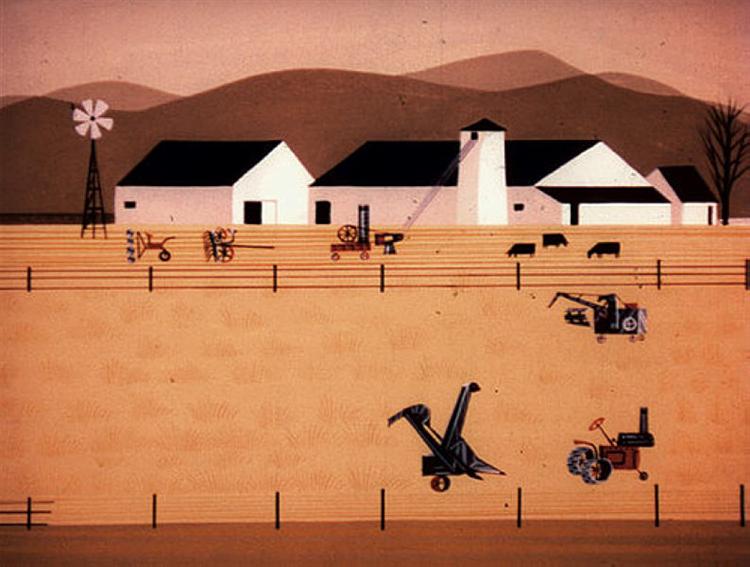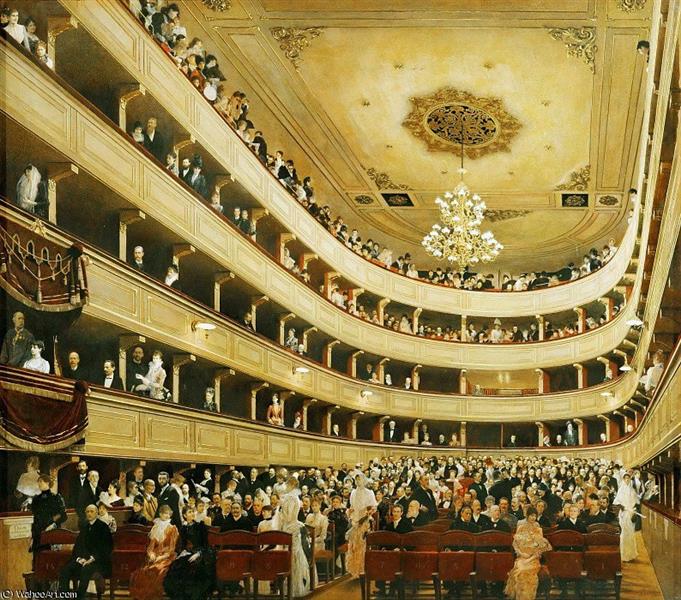
“Rhapsody of Steel“ (1959)
Eyvind Earle
________
so what’s a rhapsody
if you’ve been following at all my
heard by now several rhapsodies
at first, I suggested that the rhapsody
was an evolution from the fantasia,
a piece of music in one movement
that allowed for any internal
construction, but that, after the
Classical Period, became imbued
with Romanticism, passion became
a condition of music, mere technical
ability was no longer enough
note that the audience was different,
rather than nobles who commissioned
artists to decorate their salons, the
burgeoning Middle Class was hungry
for them to entertain, performers were
becoming the main attraction, not just
the background, see, for instance,
Beethoven
but not only did rhapsodies spread
from just one player to an entire
orchestra – see Brahms, then
see Gershwin – but its essential
structure, one movement, was
challenged, see Ravel here, or
are both composed of distinct
movements, Rachmaninov even
further refining his movements
into variations, for years, I
Variations
all this to say that a rhapsody is
turning out to be not identified
by its structure, its technical
parts, but rather by its intention,
a rhapsody is in the eye of its
composer, like a nocturne, or
a ballade
I’d thought that rhapsodies had
been relegated to the Romantic
Era, with the occasional later
tribute
who, I wondered, could be
writing rhapsodies anymore
but here’s something, however
unexpectedly, you’ll be familiar
with, from 1975, Queen’s Bohemian
Rhapsody, in several movements
– intro, ballad, opera, hard rock,
outro – and including in all of them,
note, voice
all of which speaks of tradition
being a lot closer than one would
think, ancestral, residual, but
defining, traces, like genes,
however updated, however
posthumously interpreted,
pervade, infiltrate, pursue,
inexorably
rhapsodies are in our DNA, it
would appear, for better or for
worse, ever
here’s to them
R ! chard


